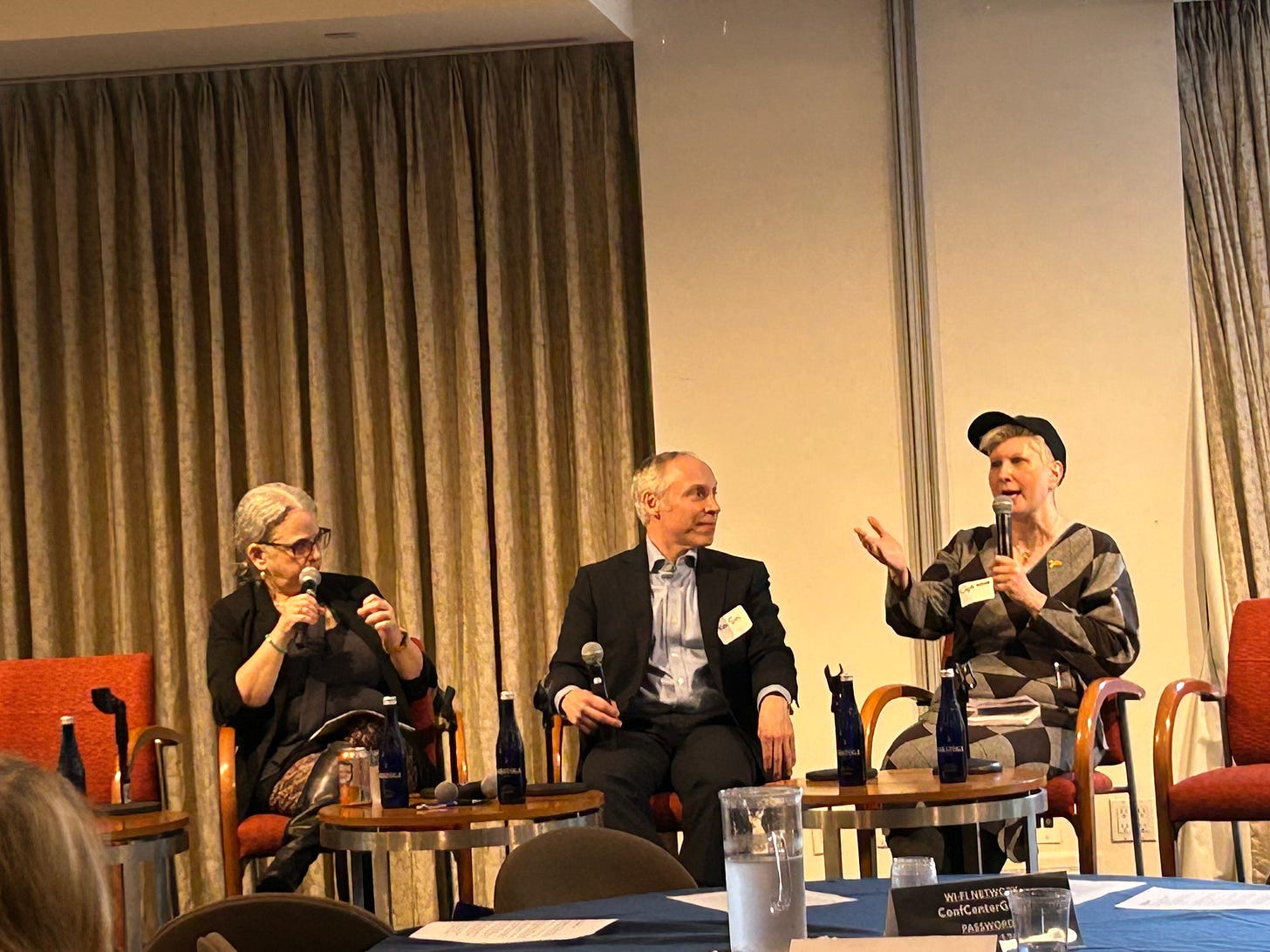Glossary of Self-Direction Terms - 18th Annual Hilibrand Autism Symposium 2025
Thanks Beth Rosenberg, Hilibrand Family, Ken Siri, and Cayle White
I attended the 18th Annual Hilibrand Autism Symposium 2025, and I will soon post some highlights from the event. First I wanted to share this excellent glossary of terms put together by Beth Rosenberg, Cayle White and their team. It is geared for the NY State OPWDD System, especially new families, but it can certainly be a guide for other states:
Advocate: A person (i.e. a parent or family member) who helps the Self-Direction participant by guiding them through the Self-Direction process, staying in contact with necessary agencies, and making sure the participant’s needs are met and their best interests are prominently centered.
Budget Authority: provides the individual/family with the authority to make self-direction budget decisions.
Circle of Support (COS): A team of people (family, friends, care manager, clinicians, broker, and other supporters) who help the participant make decisions and create a plan for their life in alignment with the participant’s personal preferences and goals. The Participant/Self-Advocate is the focus of Person-Centered Planning.
Care Coordination Organization (CCO): An agency staffed by Care Managers that helps the participant access needed services and support for their Life Plan.
Care Manager: A professional who helps the participant with planning and coordinating services based on their needs. The Care Manager is tasked with creating the Life Plan and making sure all assessments are accurate and up to date.
Community Habilitation (Com Hab): Support services that help a participant live independently and integrate into their community. These supports are designed to empower individuals, fostering their independence and promoting inclusion within the community. The individuals providing this vital assistance are typically known as Com Hab Staff or Direct Support Professionals (DSP).
Com Hab Staff: are employed by the participant and their Circle of Support, are known as a Direct Support Professionals (DSP) or Com Hab support staff. They offer necessary assistance and instruction both at home and within the community. The Circle of Support is responsible for selecting and hiring DSPs with the right skill sets and characteristics, as well as managing their work schedules, duties, and pay (following FI guidelines).
Coordinated Assessment Survey (CAS): The OPWDD-required evaluation, performed by an OPWDD or contracted assessor, collects details about a participant’s capabilities, preferences, and support requirements. This information, along with the Life Plan and additional documentation, informs the creation of a service plan. OPWDD now mandates a current CAS (conducted within the past two years) for new service requests and intends to replace the DDP-2 with the CAS for adults and the CANS for minors.
Developmental Disabilities Profile 2: The DDP-2 is a needs assessment tool used by OPWDD. The scores from this assessment are used to determine the Personal Resource Account—the amount of $ the participant will be allowed to receive annually. This is typically updated every two years.
Developmental Disabilities Regional Offices (DDRO): are the local OPWDD branches tasked with managing and coordinating the provision of services and support.
Employer Authority: allows the self-direction participant and their representatives to make staffing decisions, including recruiting, training, scheduling, supervising, and setting hourly wages.
Fiscal Intermediary (FI): An organization that manages payments and employment records for self-hired staff and helps participants follow financial compliance guidelines. The FI pays for Self-Direction budgeted services with funding secured by the OPWDD from Medicaid. The FI holds the participants budget and must “approve” all community classes before payment can be made.
Home & Community-Based Services Waiver (HCBS): Medicaid-funded program that helps people with developmental disabilities receive services locally and remain in their communities instead of institutions.
Life Plan: A personalized plan created by the Care Manager, in collaboration with the participant and their team, outlining goals, needed services and safety safeguards.
Natural Supports: Family members, friends, or others who provide support without being paid.
Self-Direction (SD): Self-Direction is an HCBS funded service delivery model that is an alternative to traditional agency services. Individuals who choose to Self-Direct are vested with Budget and Employer authority. They are allocated a yearly budget called a PRA.
Self-Direction Budget: The document that outlines the funds allocated for services like classes, recreational activities, housing, employment support, transportation, self-hire staff etc.
Self-Direction Broker: A professional who helps create and manage the Self-Direction Budget and makes sure it follows all guidelines. Brokers can also recruit self-hire staff and are responsible for drafting staff action plans.
Supported Employment: Services that help the participant find and keep a paid job, after other services have been tried.
Traditional Services: Support services provided by agencies in group settings, like day programs, respite care and residential settings. These can be paid for using the Self-Direction budget.
Thanks Beth Rosenberg of Tech Kids Unlimited, Cayle White of the JCC Manhattan, and our friend Ken Siri - Self Direction Broker to Dustin Sweeney.






I want to comment on Community Habilitation. I am 79 and advocate for my 73-year-old autistic brother.
Community Habilitation was a myth for me. I heard about the concept, but it did not exist in my city. I finally put my brother in traditional assisted living which is very expensive. This is a huge problem for families as the number of autistic individuals increases.